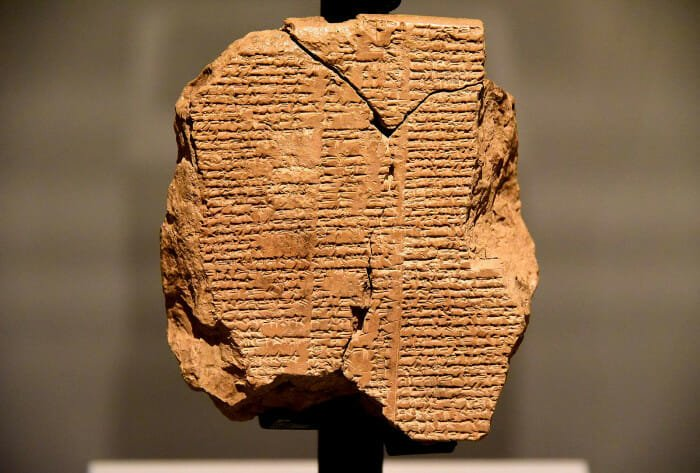
Epic of Gilgamesh
The *Epic of Gilgamesh*, one of the world’s oldest literary works, was first recorded on clay tablets in cuneiform script, dating back to ancient Mesopotamia around 2100 BCE. The story originated in the Sumerian city of Uruk (modern-day Iraq), where Gilgamesh was believed to have been a historical king around 2800–2500 BCE. Over time, his legend evolved into a grand epic, with later Akkadian and Babylonian versions adding layers of myth and moral lessons.
The most complete version of the epic comes from the 7th century BCE, preserved in the library of the Assyrian king Ashurbanipal in Nineveh. The library, a vast collection of texts covering history, religion, and science, was buried under the ruins of the Assyrian empire after Nineveh was sacked in 612 BCE. The Gilgamesh tablets lay undiscovered for more than two millennia.
*"I will reveal to you a mystery, I will tell you a secret of the gods."* – The Epic of Gilgamesh
In 1849, the British archaeologist **Austen Henry Layard** and his assistant **Hormuzd Rassam** uncovered the ruins of Ashurbanipal’s library during excavations in modern-day Iraq. The tablets, inscribed in Akkadian cuneiform, were initially unrecognized for their significance. It was not until the 1870s that **George Smith**, a self-taught Assyriologist working at the British Museum, deciphered parts of the text.
Smith’s translation was groundbreaking—among the most shocking revelations was the story of a great flood, strikingly similar to the biblical account of Noah. When he read this passage aloud in 1872, it caused an international sensation, suggesting a link between Mesopotamian myths and later Judeo-Christian traditions.
Since then, additional fragments have been found in different sites across Mesopotamia, including Sippar, Hattusa, and Megiddo. These discoveries helped reconstruct missing portions of the epic, confirming its widespread influence across the ancient Near East. Scholars believe that the *Epic of Gilgamesh* was copied and adapted by scribes for centuries, evolving through different linguistic and cultural phases.
Today, the tablets are housed in the **British Museum**, where ongoing research continues to fill in gaps in the text. The epic remains one of the most significant literary and historical artifacts of human civilization, providing insight into early kingship, morality, and the universal quest for meaning and immortality.
